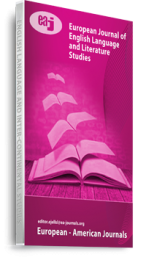In Crescent (2003), Abu Jaber questions the meaning of identity in relation to exile. Sirine suspects if Hanif is drawn to the American or the Iraqi side of her, which immediately fractures identity into two conflicting aspects. She herself questions her identity as an Arab American. She wants to know which part of her identity defines her the most as she finds herself on the borderline between who she is and the way she appeals to Han. Her romance with Han opens her eyes to questions such as: Does she belong better in the Middle East where flavours, scents, pictures, and stories seem to be pulling her? Is she too American for Han? Do exiled people in this situation live in imaginary homes, or does guilt, as in Han’s case, become a defining factor that determines their hyphenated identities? This article addresses these questions. It examines how the notion of hyphenated identities inform the characters’ decisions and anxieties in the novel. What does the hyphen signify? In what ways can the novel be understood as a negation or an assertion of self-divided identity? In what ways does it celebrate and represent this hyphen that determines the diasporic condition.
Keywords: Diaspora, anglophone, crescent, exile., hyphenated, identities

